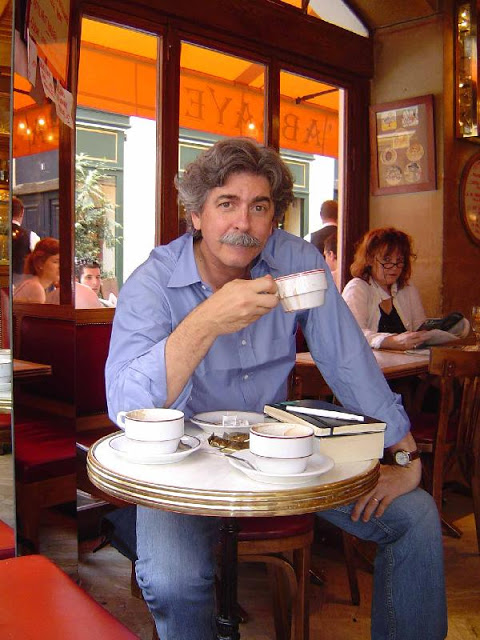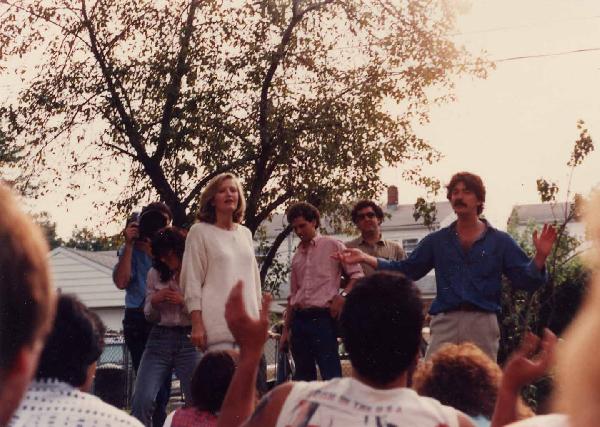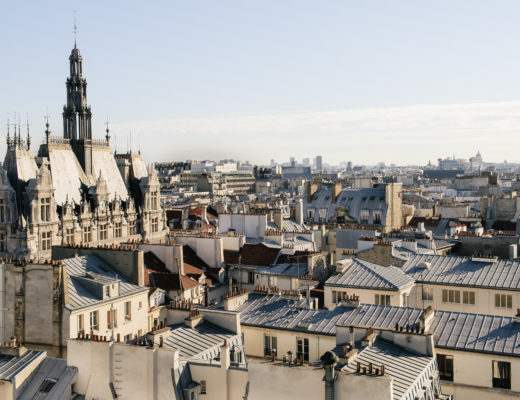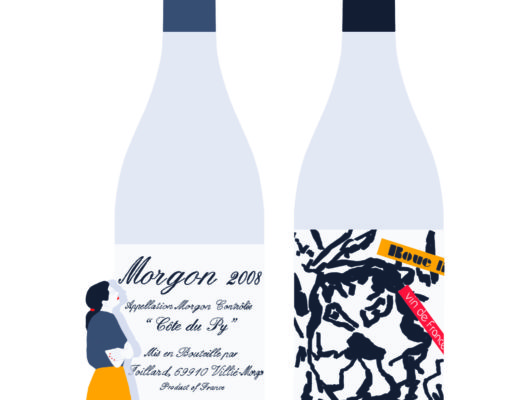
When I was a kid, I wanted to be a painter, a teacher, a movie critic and a bus driver. It was clear even then that I was headed for indecision, never quite knowing where my talents would be put to good use. People around me have always seemed to know what they were destined to do with their lives and David Turecamo is no exception. Emmy-award winning producer and writer for 60 Minutes, Nightline and currently turning out investigative clips for CBS News Sunday Morning, David has claimed Paris his home on and off for the last 9 years. I met David on twitter, of all places, and knew within moments of perusing his video gallery on youtube that I wanted to know more about the man Ted Koppel called “a born storyteller”. He graciously (and comically) agreed to answer a few questions.
You joke on your website that you’ve been making films since you were 7 years old but I get the feeling you’re not just teasing. Was there a defining moment in your childhood – a certain film or role model – that sparked this passion?
I have analysts the way some people have ex-wives and I think it was the second who put his pad and pencil down one day and said: “that’s it- that’s why you make movies!” I had just told him the story of how my parents were divorced when I was two; my mother took me with her to Hollywood because she was one of many women – like Marilyn Monroe – put under short term contracts and given acting lessons by the studios. She couldn’t afford a sitter so she’d leave me with a film editor friend and I’d sit in a cutting room all day. He, according to Dr. Graler, was a father figure and voila! Too bad you need to pay so much money to doctors to find out what, theoretically, you already must know.
With an extensive film career and an Emmy award to your credit, what has been your greatest accomplishment?
My daughter.
You have been in Paris on and off for 9 years. What surprises you most about the most idealized and romanticized city in the world?
The metro stops at one and you can NEVER find a taxi. This wouldn’t bother me because I don’t go out much at night but the French have this notion that, even on a school night, a dinner party lasts until one; if there’s a little music you’re there until two; and a wedding or birthday you should assume is a sleep over. There they are drinking and dancing, laughing and “tutoy-ing” all over the place not giving a damn about how they’re getting home. What is it with these people!?
Notice the Parisian woman behind him who looks thrilled/suspicious
Parisians are often very suspicious of unsolicited small-talk and questions. Have you encountered anyone unwilling to talk to you or be part of your interviews either because you are not French or because they suspected you were up to no good?
This is a problem everywhere. In Africa they arrest you. But France has the absolute WORST laws in the world about photography – “le droit à l’image” (image rights): it’s the right of any French citizen not only to arrogantly REFUSE to be photographed but then, because they’re French, they decide to underscore their contempt by walking through the frame holding a newspaper or hat over their face. Not entirely surprising for a country that coined the term “cinq à sept”. If I want to ask someone questions on camera I’m obliged as a journalist to introduce myself, explain what I’m doing then “avec votre permission?” The truth is that most of the people I shoot, the ones who interest me anyway, are pretty regular folk who’ve never had anyone take much of an interest in what they think or do and they’re delighted to offer a glimpse of their lives.
You split your time between Paris and New York – which city has inspired your work more and why?
Neither. They’re both exciting but I’ve done some of my best work in places I couldn’t wait to get out of. It doesn’t matter where you are as long as you’re working otherwise even Paris is a drag.
Are you working on any film projects you can tell us about?
Besides the stuff I do for CBS, I’m setting up workshops in Paris and NY to teach people filmmaking as I know it (doing everything myself) and as it’s evolving – using iPhones and simple software. It’s fun for me to explore because it’s not television or filmmaking in the traditional sense. There are certain things that will never change – editing: do you really need seven shots of the Eiffel Tower in your piece about Paris?
What the workshops will focus on are the decisions you need to make as you take your camera out of the bag. To decide quickly – where’s the light, what’s the subject, the setting, and what do I want from this? – how can you control those elements? What’s exciting now is that it’s easier to use images. I think the latest figure is something like 38% of the stuff on the internet is video and that encompasses everything from Comedy Central to your cousin Erma’s wedding. But it’s a language most people never studied in school – and since we’ll be using it more and more I’d like to raise the literacy rate.
David directing Diane Sawyer (left) for a David Letterman special, 1986
What advice might you have for foreign artists – writers, filmmakers, painters, musicians, etc. – who want to move to Paris for inspiration and work?
It’s too expensive and there’s not a centralized scene (other than Les Frigos on the edge of the city.) But if you must come, please don’t buy a scarf and act contemptuously toward “Americans!”
What is your all-time favorite film?
There are three: Citizen Kane, Fellini’s 81/2 and Warhol’s ****. Each of them redefines what a movie is, though Warhol’s **** probably no longer exists.
A big thank you to David who will be soon heading to NY to begin his workshop! Be sure to check out his Paris-based videos for CBS – my favorites? “The Select” , “French Health Care System”, “Lionel Poilâne, The Baker”. Enjoy.
1)














